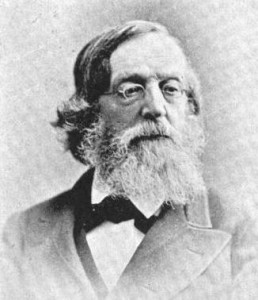I wouldn’t identify myself as a Trekkie. I’m more of the Star Wars equivalent (a “Warsie”?). But I am a fan of the original Star Trek series as well as the movies that came out of it.
My favorite film in the series is Star Trek II: The Wrath of Khan, which features Ricardo Montalban as the genetically engineered villain Khan Noonien Singh, who escapes from a 15-year exile on a planetary wasteland to exact revenge on the man he holds responsible for stranding him there–Admiral James T. Kirk.
After a succession of battles, the film culminates with Khan igniting the ultimate suicide bomb–the Genesis device, a terraforming missile that will reorganize the matter of anything within its deadly range. With the Enterprise’s main engines crippled, there’s no way the ship can escape, so Mr. Spock undertakes his own suicidal mission by entering the radiation chamber in the Enterprise’s engine room and restoring the ship’s warp drive.
Kirk arrives just in time to witness his best friend’s dying moments, during which Spock justifies his actions by quoting a Vulcan proverb, “The needs of the many outweigh the needs of the few or the one.”
I’ve pondered this proverb many times since I first heard it back in 1982. Appropriately enough considering its Vulcan origin, there’s an undeniable logic at the heart of this saying. Why should one person’s needs, or the needs of a few people, outweigh the needs of the entire group? Those who attempt to subvert the group to their needs are typically regarded as tyrants–or at best, passive-aggressive. As Jeremy Bentham put it, “It is the greatest good to the greatest number of people which is the measure of right and wrong.” So from a strictly utilitarian point of view, this proverb seems to make sense. For the sake of the greater good, sometimes one or a few or perhaps even a few hundred thousand individuals must be sacrificed… Right?
Unfortunately, all too often this is exactly the sort of thinking to which governments, corporations, families and even churches resort in a time of crisis. It is merely another form of tyranny, the tyranny of the majority. As I argued in a previous post, this cruel logic can be traced right back to a sacrificial view of God which has dominated humanity (and Christianity) for much of its history. It’s a view that requires an endless stream of scapegoats, a little bit of violence to inoculate the group against a potentially fatal disease. But I don’t think this is the way in which Mr. Spock intended his words–or his actions–to be interpreted.
As a half-human/half-Vulcan creature, Spock continually struggles to neutralize or at least mask the emotions that are always bubbling just beneath the surface of his stoic exterior. This battle is evident even in his dying moments where immediately after he articulates the logic of his suicidal mission to save the Enterprise, Spock assures Kirk, “I have been and always shall be your friend.”
This hints at an even deeper logic underlying his cold, Vulcan reasoning–the logic of love. Rather than compel the sacrifice of another, love impels us to sacrifice ourselves on behalf of the other, for no other reason than our desire to ensure their welfare.
So from this perspective, the needs of the many really do outweigh the needs of the few or the one, but it seems to me that only the few or the one are ever in a position to make this determination.
There, now my 11-year-old self can finally lay this saying to rest.











